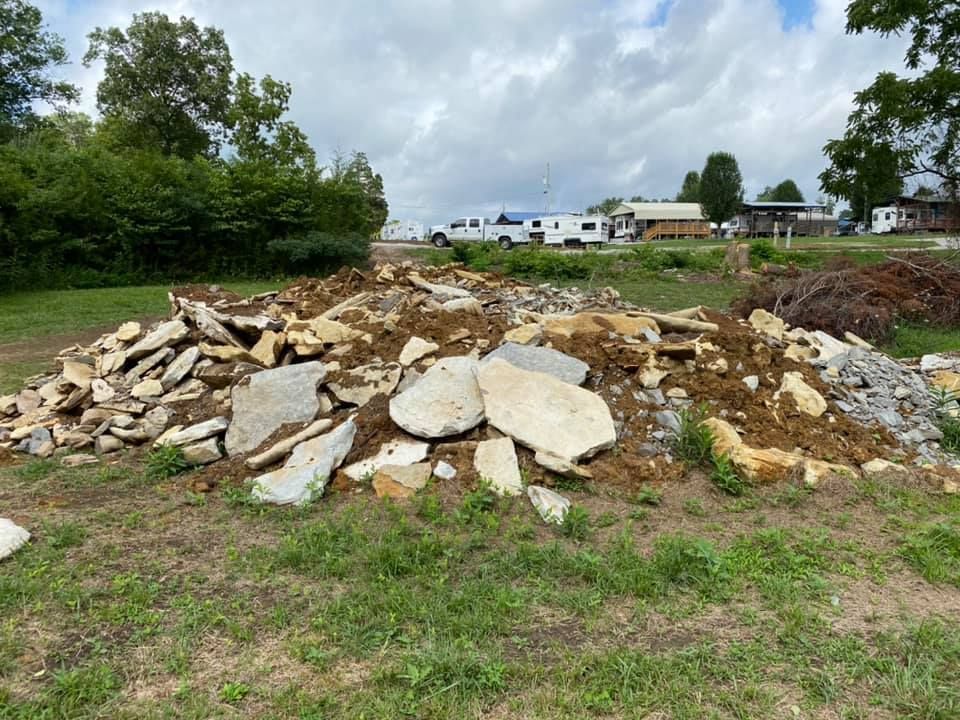Blog

When it comes to demolition, preparation is key to ensuring a safe, efficient, and successful project. Whether you're planning to demolish a small structure or a large commercial building, the steps you take before the actual demolition can make a significant difference. At Zielinski Excavating, we specialize in providing top-notch demolition services, and we’re here to guide you through the essential steps to prepare for your demolition job. 1. Understand the Scope of the Project Before you begin, it's crucial to understand the full scope of your demolition project. This involves knowing the size and type of the structure, the materials involved, and the specific goals of the demolition. Are you planning a complete teardown, or do you only need partial demolition? Knowing these details helps in planning the resources, equipment, and time needed for the job. 2. Obtain Necessary Permits Demolition projects typically require permits from local authorities. The requirements can vary depending on your location and the size of the project. At Zielinski Excavating, we recommend contacting your local building department to determine the permits you need. Failing to obtain the proper permits can result in fines or delays, so it’s important to get this step right. 3. Conduct a Thorough Inspection Before any demolition work begins, it’s essential to conduct a thorough inspection of the structure. This inspection should identify any hazardous materials, such as asbestos or lead, that need to be removed before demolition can proceed. Additionally, check for structural issues that could pose risks during demolition. Zielinski Excavating offers comprehensive site assessments to help identify any potential hazards. 4. Disconnect Utilities One of the most critical steps in preparing for a demolition job is ensuring that all utilities are safely disconnected. This includes water, electricity, gas, and sewer lines. Failing to disconnect utilities can lead to dangerous situations, such as gas leaks or electrical fires. It’s best to work with utility companies or professionals to ensure everything is properly shut off before demolition begins. 5. Clear the Site Clearing the site involves removing any furniture, equipment, or personal belongings from the structure. Additionally, ensure that the surrounding area is free of debris, vehicles, and people to prevent accidents. If you're working on a commercial or residential property, make sure neighboring properties are aware of the demolition schedule to avoid any conflicts or safety concerns. 6. Develop a Safety Plan Safety should be a top priority in any demolition project. Developing a comprehensive safety plan involves: Training: Ensure that all workers are trained in demolition safety procedures. Protective Gear: Provide proper protective gear, such as helmets, gloves, and eye protection. Emergency Procedures: Establish clear emergency procedures in case of accidents. Debris Management: Plan for the safe removal and disposal of debris to prevent injuries and environmental harm. At Zielinski Excavating, we prioritize safety and adhere to strict industry standards to ensure a safe working environment for all our projects. 7. Plan for Waste Management Demolition generates a significant amount of waste, including materials like concrete, wood, metal, and hazardous substances. Proper waste management is essential for both environmental and legal reasons. Zielinski Excavating can help you develop a waste management plan that includes recycling and disposal in compliance with local regulations. 8. Coordinate with Professionals Demolition is a complex process that often requires coordination with various professionals, including engineers, architects, and environmental consultants. Working with a reputable demolition contractor like Zielinski Excavating ensures that all aspects of the project are handled professionally, from planning to execution. 9. Communicate with Stakeholders Finally, clear communication with all stakeholders, including property owners, contractors, and neighbors, is essential. Keep everyone informed about the demolition schedule, potential disruptions, and safety measures in place. This helps to avoid misunderstandings and ensures that the project runs smoothly. Conclusion Preparing for a demolition job involves careful planning and coordination to ensure a safe and successful outcome. By following these steps, you can minimize risks, stay on schedule, and achieve your demolition goals efficiently. At Zielinski Excavating, we bring years of experience and expertise to every demolition project, providing you with peace of mind and top-quality service. If you're planning a demolition project, contact Zielinski Excavating today. We're here to help with all your demolition needs, from initial planning to final cleanup. Let us make your next project a success!

Preparing for Excavation Services: A Comprehensive Guide Excavation services are a crucial step in various construction and development projects. Whether you're planning to build a new home, install utilities, or create a foundation, proper preparation is key to ensuring a smooth excavation process. Here's a comprehensive guide on how to prep for excavation services: 1. Understand Your Project Requirements Before embarking on excavation, have a clear understanding of your project's scope and requirements. Identify the specific areas that need excavation, the depth required, and any specific challenges or considerations for the site. 2. Survey the Site Conduct a thorough site survey to assess existing conditions. Identify potential obstacles such as trees, rocks, or existing structures. Understanding the topography and soil conditions will help the excavation team plan accordingly. 3. Secure Necessary Permits Check with local authorities to determine if permits are required for excavation. Different municipalities have varying regulations, and obtaining the necessary permits ensures that your project is compliant with local laws. 4. Communicate with Utility Companies Before excavation begins, contact local utility companies to locate and mark underground utilities such as gas, water, and electrical lines. This crucial step helps prevent accidental damage to utility lines during excavation. 5. Clear the Area Remove any obstructions from the excavation site, including vegetation, debris, and any structures that may interfere with the process. A clear and unobstructed work area allows the excavation team to operate efficiently. 6. Create a Safety Plan Safety is paramount during excavation. Develop a comprehensive safety plan that includes measures to protect workers, visitors, and the surrounding environment. Ensure that all personnel involved in the project are aware of safety protocols. 7. Hire a Professional Excavation Contractor Choosing the right excavation contractor is crucial for the success of your project. Look for experienced contractors with a track record of completing similar projects successfully. Verify licenses, insurance, and check references to ensure reliability and expertise. 8. Provide Adequate Access Ensure that the excavation site has adequate access for heavy machinery and equipment. Clear pathways and remove any obstacles that may hinder the movement of excavation equipment. 9. Establish Erosion Control Measures Implement erosion control measures to prevent soil erosion and sediment runoff during excavation. This is especially important for projects near water bodies to minimize the environmental impact. 10. Monitor Weather Conditions Keep an eye on weather forecasts, as heavy rain or adverse weather conditions can impact excavation work. Consider scheduling excavation during periods of dry weather to minimize potential disruptions. Conclusion Proper preparation is the foundation of a successful excavation project. By understanding your project requirements, conducting a thorough site survey, securing permits, and following safety protocols, you set the stage for a smooth and efficient excavation process. Partnering with experienced professionals ensures that your excavation project is executed with precision and meets the highest standards of quality and safety.
